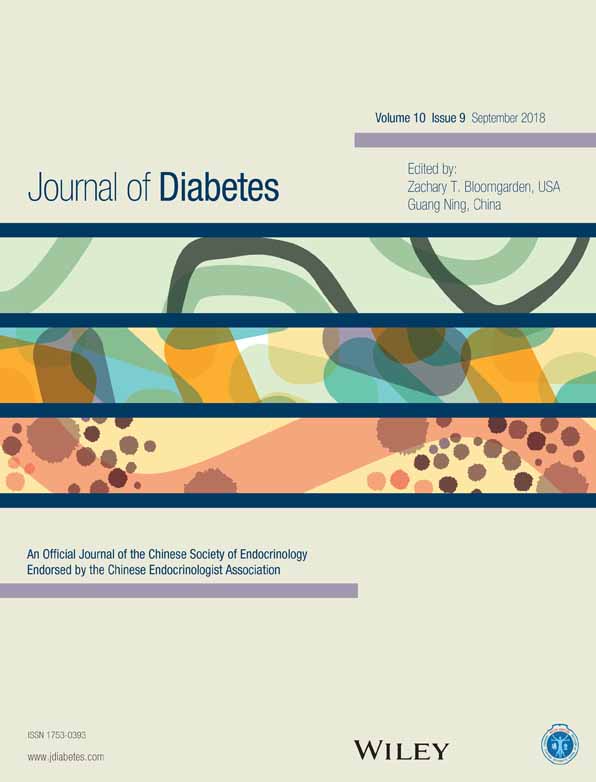Exploring effects of self-management on glycemic control using a modified information–motivation–behavioral skills model in type 2 diabetes mellitus patients in Shanghai, China: A cross-sectional study
中国上海市2型糖尿病患者利用改进的信息-动机-行为技巧模型对血糖控制的自我管理的作用机制探索:一项横断面研究
Abstract
enBackground
The original information–motivation–behavioral skills (IMB) model has been verified in type 2 diabetes mellitus (T2DM) patients, but the effects of the model on glycemic control remain unclear. The aim of this study was to modify the IMB model to explore the effects of self-management on glycemic control in T2DM patients in Shanghai, China.
Methods
A cross-sectional study was conducted on participants recruited using a convenience sampling method between June and August 2015 in three tertiary hospitals and four community health service centers; 796 participants meeting the inclusion criteria (age ≥18 years and a diagnosis of T2DM) completed a questionnaire and blood test for glycemic control. Structural equation models were used to test the IMB framework.
Results
The modified model demonstrated an acceptable fit of the data. Paths from information to self-management behaviors (β = 0.119, P = 0.001) and HbA1c (β = −0.140, P < 0.001), from motivation to behavioral skills (β = 0.670, P < 0.001), from behavioral skills to self-management behaviors (β = 0.562, P < 0.001), and from self-management behaviors to HbA1c (β = −0.343, P < 0.001) were all significant and in the predicted direction. Information and motivation varied with each other (r = 0.350, P < 0.001).
Conclusions
Glycemic control can be incorporated into the IMB model. The utility of the modified model in the study population is validated. Type 2 diabetes mellitus patients with poor control of glucose levels may be a better target population for application of the modified IMB model.
摘要
zh背景
现有研究已证实原始的信息-动机-行为技巧(information–motivation–behavioral skills, IMB)模型在2型糖尿病患者中有效, 但该模型对血糖控制的作用尚未明晰。本研究的主要目的在于改进原始IMB模型, 在中国上海市2型糖尿病患者中探索该模型对血糖控制的作用机制。
方法
本横断面研究采用方便抽样, 于2015年6月至8月间在上海市3家三甲医院及4家社区卫生服务中心招募研究对象, 共计796名患者符合纳入标准, 即确诊为2型糖尿病的18岁及以上成人, 对其进行问卷调查和血液检测。采用结构方程模型检验IMB模型的有效性。
结果
修正的模型拟合良好。从信息至自我管理行为(β = 0.119, P = 0.001), 从信息至糖化血红蛋白(β = −0.140, P < 0.001), 从动机至行为技巧(β = 0.670, P < 0.001), 从行为技巧至自我管理行为(β = 0.562, P < 0.001), 以及从自我管理行为至糖化血红蛋白(β = −0.343, P < 0.001), 上述路径均有显著的统计学意义, 且路径方向合理, 信息与动机共变(r = 0.350, P < 0.001)。
结论
血糖控制能够纳入IMB模型, 且本研究证实了修正的IMB模型在该人群中的有效性, 探索性研究提示血糖控制不佳的2型糖尿病患者可能是应用该模型干预的更好的目标人群。




